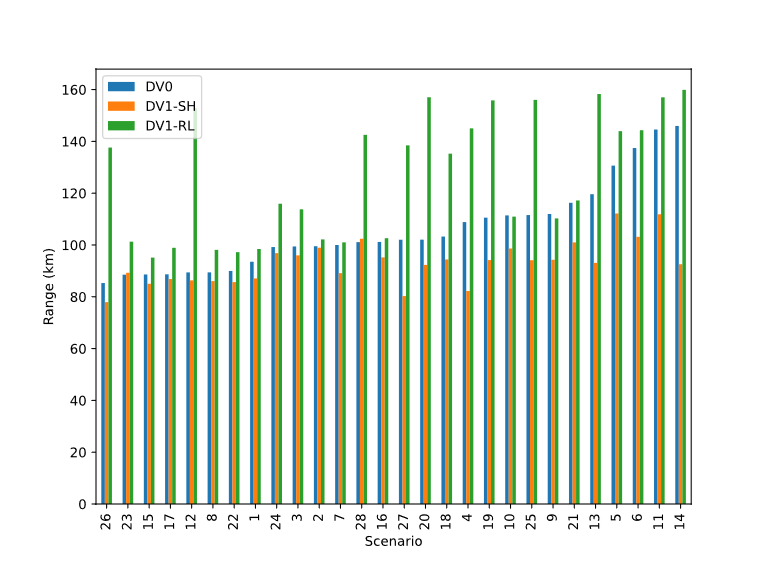Optimised Controller – October 2021
Result from partner:
- COV (James Brusey)
Result has been achieved in October 2021 : month 48 of the project.
Short introduction
The DOMUS project has developed an optimised car cabin comfort controller and shown, through simulation, a 20% range extension for the target Electric Vehicle (EV). The optimisation work builds on past DOMUS work, including:
- a comprehensive Assessment Framework (AF) that is suitable for the European climate (see Report 1.2);
- a Holistic Comfort Model (HCM) that assesses the many factors leading to thermal comfort including acoustic, visual, and acclimation factors (see Report 1.3);
- a fast integrated simulator of the car cabin (see Report 1.5).
The overall results show an increase in comfort, safety, and a significant reduction in energy consumption.
Objective
This part of the project relates to the following DOMUS objectives:
- Radical redesign of EV cabin with understanding of driver comfort perceptions, technological innovations (Results 2–5), and vehicle level performance optimisation.
- Virtual development process for cabin redesign and multidimensional optimisation.
- Measure impact of cabin redesign and advanced efficiency increasing interventions on vehicle efficiency, range, comfort, and safety via comparison to baseline.
- Development and application of an approach to simplify the virtual assessment of comfort and efficiency and perform optimisation work.
Results
The results, which are summarised below, indicate that the controller does broadly achieve this aim although there may still be some room for further improvement. Briefly, the optimised controller gives a comfortable and safe environment for a greater percentage of the time while using significantly less energy. The fitness column is a combined metric that considers comfort, safety, and energy in proportions established at the start of the project with a higher value being better.
| Comfort % | Energy | Fitness | Safety % | |
| Base | 84.8 % |
2389 W |
-1.82 | 17.1 % |
| Optimised | 95.7 % | 748 W | -0.0484 | 99.7 % |
The energy saving translates to about a 20% energy saving assuming a 24 kWh battery. The actual range extension varies depending on situation, which shows the value of the rich assessment framework approach used.
Graph: simulation of different range extension scenarios


